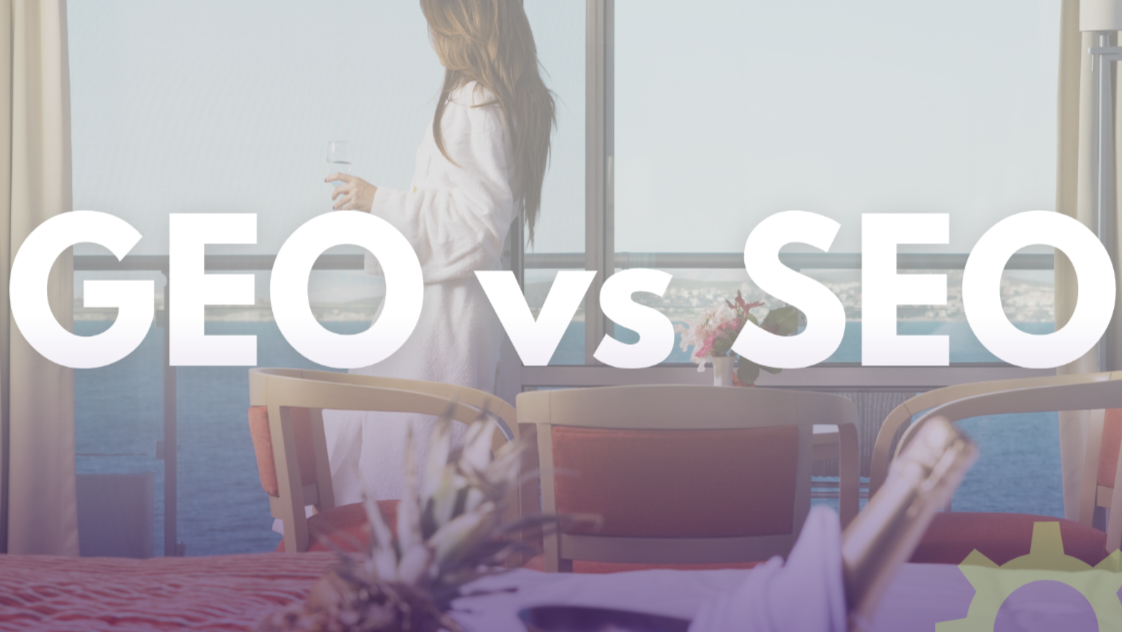Defining and executing a social media plan is not for the faint of heart.
NB: This is an article from Cogwheel Marketing, one of our Expert Partners
Currently, hoteliers are short staffed in every department and sometimes social media is a last priority. But, if we have learned anything through the pandemic, it is not to forget or devalue our transient guests. Whether you are opting to take on this endeavor in-house or outsource to an agency or consultant, there are a lot of considerations.
Subscribe to our weekly newsletter and stay up to date
In-House Considerations
If you are going to task your in-house team or person to manage all things social media, ensure you have the right skill sets to execute. Managing social media access can be very time consuming to be effective.
- Access – It never fails. An enthusiastic employee is excited to get the social media game going strong. They build pages and a following, then leave and no one has access. Ensure multiple people have administrative access and logins are securely stored.
- Time – If you are assigning this to a hotel team member, ensure they can devote at least 3 hours a week to social media. Frequently, we see some employees have the enthusiasm, but it quickly wanes after a few weeks given their other responsibilities.
- Knowledge – Has your in-house team been given any training? While much of social media is self taught and should be an evolving learning opportunity, posting as a business on behalf of a hotel or restaurant is not the same as posting on one’s personal accounts. Hubspot has some free courses on Facebook as well as Google’s Digital Garage.
- Branding – Ensure your in-house team is equipped with your hotel’s branding. This includes colors, fonts, value proposition, defining characteristics and any words that define your hotel’s personality. (This could also include words you may want to stay away from!)
- Benchmark – Establish goals and objectives, but be patient. Organic postings are a long term game and what works at one hotel may not work at another.
Agency Considerations
While many of the skills are similar, an agency is going to (or should) have the knowledge base. Make sure you hire an agency that is familiar with your industry and can guide you to cater to specific audiences that align with your brand.
If you are a GM or owner and just want to “check the box” that social media is being handled, hold tight. A marketing agency cannot be successful without someone physically located at the hotel to give direction and insight.
Most digital agencies will do their own market research, find demand generators and educate themselves about the hotel. But, they really need to be fed what is happening at the hotel.
Someone should be sending them pics (and stories) about staff, awards, any charity participation, change in hotel amenities, hotel packages, positive reviews and more.
Developing a Content Strategy
While you are likely quick to post your upcoming holiday deal, slow down. A good rule of thumb is no more than 20% of your posts should be an offer.
Think first of your audience. Who are your followers? What do they care about?
Many hotels are intrinsically tied to their location. Why is it that people visit and why might they visit again? If they have stayed at your hotel, did one of the staff make an impact?
Sit down and try to create a forward looking content calendar. Start with a 12 month calendar and think about the times of the year that are important to your hotel and local area. Include anniversaries, housekeeping appreciation week, seasonal changes (like the opening and closing of the pool), and holidays that affect the hotel. As for the local area, notate festivals, charity events, seasonal openings/closures, even school related events. Compile a list of local businesses and consider reciprocal posting. Then you can fill in posts about hotel amenities, polls or fill in the blank questions, and any ad hoc posts.
Imagery (plus video) is the most crucial part of your content strategy. It will give life to the stories you want to tell.
No Organic Without Paid (and Vice Versa)
“Organic” social media refers to the regular postings that occur that do not cost money. That does not mean that it is not time consuming, thus still holds value.
Nothing is worse than doing a high frequency of posts that no one ever sees.
The purpose of regular organic posts is to engage with your current followers. Your current followers, and potentially those they are connected with, are the only people that may see those posts.
So, if you are just starting, or have a low follower base, ensure you have a defined follower acquisition strategy.
Many people ask, “How often should I post?” That is a hard question to answer. If you are new to developing an ongoing content strategy, start slow. Set a goal of once per week and then increase once you get some momentum and see what is working for your audience.
Read more articles from Cogwheel Marketing
Reprinted from the Hotel Business Review with permission from www.HotelExecutive.com





